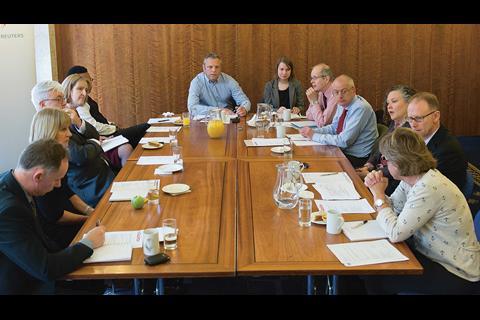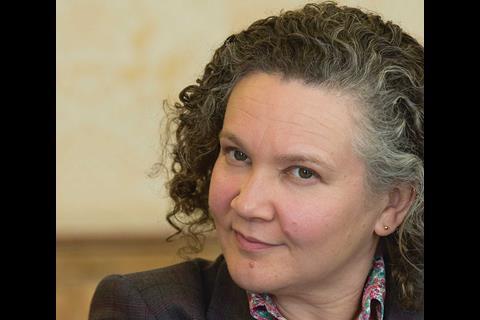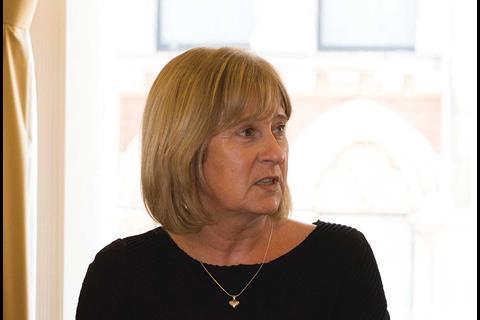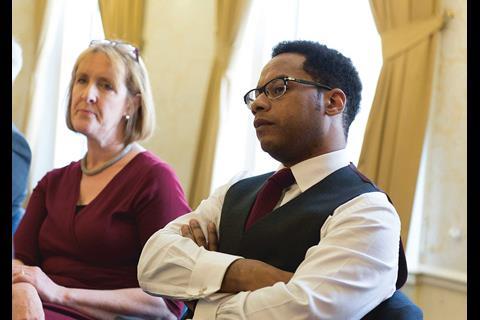Local authorities are turning to innovative operating models in a climate of savage retrenchment.
Public sector legal teams are fighting for their future on many fronts. They are confronted by a shrinking client base, new entrants to the market and a long winter of austerity.
For many local authorities, outsourcing is an increasingly attractive option as they struggle to meet testing cost-saving targets. Last month, Lincolnshire County Council was the latest to go down this route, signing a £70m five-year deal to outsource most of its back-office functions to Serco.
However, practice rules prevent in-house teams from taking on outsourced public sector work. Consequently, many legal teams are turning to alternative business structure (ABS) models just to maintain their current client base.
Nicholas Dobson is a consultant at national firm Freeth Cartwright and regular Gazette contributor. At the outset of the Gazette roundtable on local government, he points out that the 2011 Localism Act specifies that if authorities want to trade, they can only do so through a specified corporate medium – essentially a company. ‘An ABS would allow them to have a wider client base,’ he stresses.
Alison McKane, head of legal at the London Borough of Lambeth – which recently revealed it is applying for two ABS licences – is taking pre-emptive action.
‘In Lambeth, we are going down the co-operative council route with mutuals and spin-outs. If we stand still, we are going to end up with a large legal department with very few clients we can actually work for. We have to act, it’s as simple as that – we have to do something,’ she says.
James Pigott, head of law (commercial and environmental) at Kent County Council, agrees: ‘A number of local authorities are seeing their own client base diminish due to circumstances outside their own control,’ he says. The ABS model is an opportunity to prevent the erosion of business.
But Dobson alludes to anxieties around local authority ABSs – notably objections to their becoming taxpayer-subsidised legal practices that contravene EU state aid rules. ‘I think local authority ABSs will need to watch their back on state aid,’ he warns.
Linda Walker, consultant at HB Public Law, the shared legal services team of London boroughs Harrow and Barnet, concurs. HB Law was among the first local authorities to apply for an ABS, having submitted its application to the Solicitors Regulation Authority at the end of last year.
‘All the things Nick has mentioned are things we are aware of and they are taxing us at the moment. The last thing you want to do is go down one route to protect yourself [only to get into] all sorts of trouble because of other considerations.’
Walker points out that the ABS route is not necessarily the best option for every local authority. ‘I think it has almost become a little bit trendy and people think “Oh yes we’ll apply for an ABS”, but actually a heck of a lot of work goes into making the application. So there has to be something at the end of it; an end result that is positive.’
Rob Martin, director of software services at Thomson Reuters, asks whether the ABS model is an opportunity for councils to engage more with the community. ‘There are wide areas of law that the community could look to the local authority for,’ he suggests.
Paul McDermott, a partner at top-50 firm Trowers & Hamlins, agrees. There is a marked difference, he declares, between an ABS established to supply services to the local authority and its broader ‘family’ of services, and one that could compete directly with the high street.
He adds: ‘The ABS therefore needs to be clear about whether it is either the model of service in the family [of local authority bodies] or is intended to become a commercial trading vehicle. But if it’s seen as a subsidised ‘way out’, I think the market will respond. You will find that small firms on the high street will submit complaints to the European Commission.’
McDermott does, however, believe it is entirely possible to separate commercial from public functions. And Owen Wilcox, a senior associate at national firm Geldards, believes local authorities are fully aware of what the landscape looks like and what they need to do.
‘It’s just a case of what is the best option for a particular service they work in. I don’t really think it’s a one-size-fits-all solution for different authorities.’
Wilcox says the liberalisation of the legal market is a challenge, with new entrants such as big four accountancy giant EY, formerly Ernst & Young, coming into the market.
McDermott, agrees, citing reports that Capita will also enter the fray – as it already has a huge presence in other areas of public sector work.
‘Capita has definitely been making noises that it would like to include legal services,’ he says.
But despite internal and external pressures squeezing local government lawyers from both sides, HB’s Walker says there is still a lot to be positive about. ‘I think local government lawyers are very resilient in the main. But there are pockets where there is a burying of heads in the sand.’
Kent’s Pigott says there is still plenty of work out there. ‘Demand might be changing and shrinking in different areas, but there’s still demand. The biggest pressure is cost. We have to make sure we are set up to produce good quality legal work at the best possible price. It’s no different to the external legal market – it’s the same pressure.’
Freeths’ Dobson says cost pressures are likely to remain, as council members often view the legal department as a ‘necessary evil’.
But Catherine Bowman, councillor and former executive member at the London Borough of Southwark, says many members still place enormous value on their legal teams’ expertise. She says having an understanding of the politics and demographics gives in-house legal teams the edge over external firms.
‘I am keen, personally, on in-house legal services. I think they have all sorts of advantages that contracting out doesn’t have. Local government only runs smoothly if the lawyers actually enable it to do that and as individual members we are incredibly reliant on legal advice.’
Pigott points out that in-house and outsourcing are not mutually exclusive. ‘You can have both to a certain extent. Some work can go out and some work can stay in. If you can’t actually do the work at a good standard, or for the right price, then there may be an alternative.’
He says there is ‘no doubt’ that the cost of delivery is key to proving the in-house business case. ‘Because clients will say that’s great but we can’t afford it. We don’t have the budget and we just can’t ignore that. ‘
Nigel Inniss, from Suffolk County Council’s legal department, agrees that the reach of local government lawyers is much broader than their legal remit. ‘It is having that finger on the pulse and knowing your members and what they want. That is where we do bring something extra,’ he says.
‘Lawyers in local government have to think slightly beyond being lawyers. What I mean by that is you have to show you are very much part of the community you are in.’
Dobson says it will always be cheaper to run an in-house team for mainstream legal work than going to an external provider: ‘For specialist expertise that isn’t needed all the time, outsourcing is probably the answer.’
But Victoria McNeill, practice director at nplaw, the shared legal service of Norfolk County Council, Great Yarmouth Borough Council and Norwich City Council, says there is a cost imperative to do more work in-house. ‘The luxury we probably can’t afford now in local authorities is a lot of external input from firms, and solicitors and barristers. So out of necessity we have to do more ourselves, but we don’t want any loss of expertise within that.
‘The only way to do it ourselves and have the necessary level of expertise is to collaborate and work together to build resilience, strength and depth.’
Walker agrees there are compelling reasons for having a shared legal team – such as the HB model – as it leads to ‘economies of scale’ and makes departments far more resilient.
However, Trowers & Hamlins’ McDermott challenges the notion put forward by some that the private sector might not be efficient because it is profit-driven.
‘Actually they might want to make a profit at being really good at what they do, not just efficient.
At the table were
Rob Martin, Thomson Reuters; Linda Walker, HB Public Law (Harrow & Barnet); James Pigott, Kent County Council; Alison McKane, head of legal, London Borough of Lambeth; Nigel Inniss, Suffolk County Council; Paul Rogerson, Law Society Gazette; Kathleen Hall, Law Society Gazette; Nicholas Dobson, Freeth Cartwright; Paul McDermott, Trowers & Hamlins; Cllr Catherine Bowman, London Borough of Southwark; Owen Willcox, Geldards; Victoria McNeill, nplaw (Norfolk)
‘It can go wrong, but it can go right. We have people round the table from the private sector and I’m sure we think we want to do a good job.’
Process work such as debt collection and transactions might be cheaper if handled externally, note many of the attendees.
But Pigott says it is not a given that external firms could always do work cheaper. ‘Salary levels in local government are modest,’ he says. ‘There is no reason to think that local government can’t do things very efficiently and very well.
‘It depends if it’s got the right people and is managed in the correct way. The “proof is in the pudding” and some people can do it better than others.
He adds that external providers sometimes give the impression they can do more than they are able.
‘We have certainly caught out a few external firms who have said we can do this, and they don’t know all the background law.’ People sometimes forget that the work of local government legal teams is itself a specialist area, notes Pigott.
Lambeth’s McKane believes one of the challenges his council faces is attracting high-calibre lawyers to work in-house.
‘There are constraints in local government. If you form an ABS you can pay the market rate and you are still paying less than you would in the private sector. So there is a business case we are working around in terms of being able to attract good staff but still spending less on legal services,’ she says.
Notwithstanding the climate of retrenchment, local authorities say they have had no problem attracting young talent at the entry level.
Late last year, Kent advertised for four trainee positions and over the space of six days received more than 70 applications.
Pigott says: ‘We reintroduced a formal programme because we think if we do it right, we can hone and grow talent. We can also get people very interested and passionate about local government work, and if you manage them correctly and they’re good enough they pay for themselves and then some.
‘That is an important part of what we do, it also brings youth, enthusiasm and modern knowledge of the law. There are many benefits of having trainees within an organisation if you have the set-up to do it.’
McKane says she has also experienced a huge level of interest among young lawyers in local government. ‘In our last recruitment drive we had 187 applications. We have two [trainees] on a rolling basis, with one starting every year,’ she says.
Nplaw’s McNeill agrees. ‘Even though it is awful for those trying to get training contracts at the moment, it is a real opportunity for us in local government to get some really excellent people into the system. We’ve also had a huge number of applicants.’
Southwark’s Bowman says: ‘There is this expectation that you don’t take local government jobs as a last resort. You take them because you have a commitment to local service as well. In some respects, I imagine working in the private sector you have additional pressure.’
‘The quality of work you get as a local government lawyer far exceeds that which you get as a junior lawyer in private practice,’ offers Dobson.
Pigott says Kent has recruited ex-City lawyers who had been two years’ qualified yet had experienced no direct client contact. ‘They’d literally never been to see a client! To my mind they have been let down in their training, because if you haven’t really had that client contact, then how can you say you’ve been trained?’
In addition to trainee schemes, Lambeth’s McKane says the council is exploring apprenticeships with school-leavers. ‘It is early days for us, but it is a bit of a no-brainer, really.’
Suffolk also recruits legal assistants. ‘As time progresses we move to develop [them] into trainees. This year three of them qualified and they’ve all been taken on. We do a recruitment drive once every year to introduce fresh blood through the legal assistants,’ Inniss says.
He adds: ‘People always think about trainees but we all forget about legal executives. And a lot of people want to take that route, even if they’ve been to law school, because they just want to get qualified. They want to get that qualification and train as lawyers, so we have quite a number of legal executives as well.’
Dobson says these schemes are crucial to the longevity of legal departments. ‘It is essential – it’s the seed corn for the future,’ he says.
On the subject of what the local authority legal market will look like in five to 10 years, everyone is in agreement: change will be the only constant.
Dobson says: ‘There is always going to be a need for people to advise local authorities on law. But there are going to be a number of different models. ABS is going to be one, some authorities will retain their own individual legal service and there will be more shared legal services.’
He adds: ‘One does have to question whether small district councils are sustainable. I know there are political reasons for their continuing existence but financial reality may ultimately remove a lot of these.’
McDermott agrees: ‘You can’t hold back the tide, and it will change. It could be a law firm in South Africa supplying legal services.’
However, Dobson cautions legal departments to be ‘careful what they wish for’ when it comes to the ABS route.
He says commercial pressures such as paying for staff sickness, holidays, superannuation, premises, business rates and marketing will all come out of fee income before the proprietors of the business get paid.
‘You really need to think through what it actually means being in business.’
But McKane questions whether these concepts are alien to local government legal teams. ‘There’s a lot of entrepreneurial spirit that is generated among local government lawyers,’ she says.
Pigott agrees. ‘Many of those in local government were in private practice. So I think for the lawyers, that [won’t be] a shock.’
Nplaw’s McNeill maintains that the flexibility of the ABS model remains a distinct advantage.
‘You are not bound by some of the very – dare I say it – bureaucratic controls of the council. You are able to operate a bit more nimbly and fleet of foot. You are also able to recruit people at the levels you need to.
‘And yes, you might have to pay more competitive salaries at the high end, but you will also be able to pay a wider range of salaries across the piece.
‘There are pros and cons. It’s about nailing down what we can’t do [in] a local authority setting.’
For Bowman, the question of what purpose an ABS structure will serve goes to the heart of the issue.
‘I feel a nervousness about a legal service launching into a commercial market. I am sure there are cases where that can work very well,’ she says.
‘I think you are absolutely right to remind local government lawyers what their core purpose is,’ says Dobson. ‘That is to enable the local authority to function lawfully and effectively to fulfil its functions.’
Dobson posits the solution of implementing a more generic definition of a public body under the Local Authorities (Goods and Services) Act 1970.
The act allows local authorities to administer, and provide technical and professional services to a public body specified by ministerial order. Having a broader definition of what a public body comprises – given the current upheaval of service provision – would allow local authorities to escape accusations of anti-competitive behaviour.
‘If ministers could be persuaded to have a generic definition of a public body for the purpose of the 1970 act, that would be a major step forward and take a lot of the sting out of the ABS debate,’ he says.
‘It would take some of the anxiety from the private legal sector that ABSs are coming to steal the bread from their mouths. I think [that] would be useful for local government, although it’s probably politically unthinkable,’ he adds.
Lambeth’s McKane agrees this could be an elegant solution, as outsourcing prevents departments from continuing their client work ‘even though [these new bodies] are essentially public services still’.
HB’s Walker agrees: ‘Basically [legislation] hasn’t kept up with things. Nobody has looked back and addressed that.’
Against a backdrop of increasing changes to public service provision, it is inevitable more legal teams will seek to innovate to stay afloat.
A burning question will be whether they can navigate the uncertainty around whether the ABS model puts them at an unfair advantage against the private sector, as they effectively become commercial entities in their own right.
Kathleen Hall is a Gazette reporter
- This roundtable was kindly sponsored by Thomson Reuters





































No comments yet